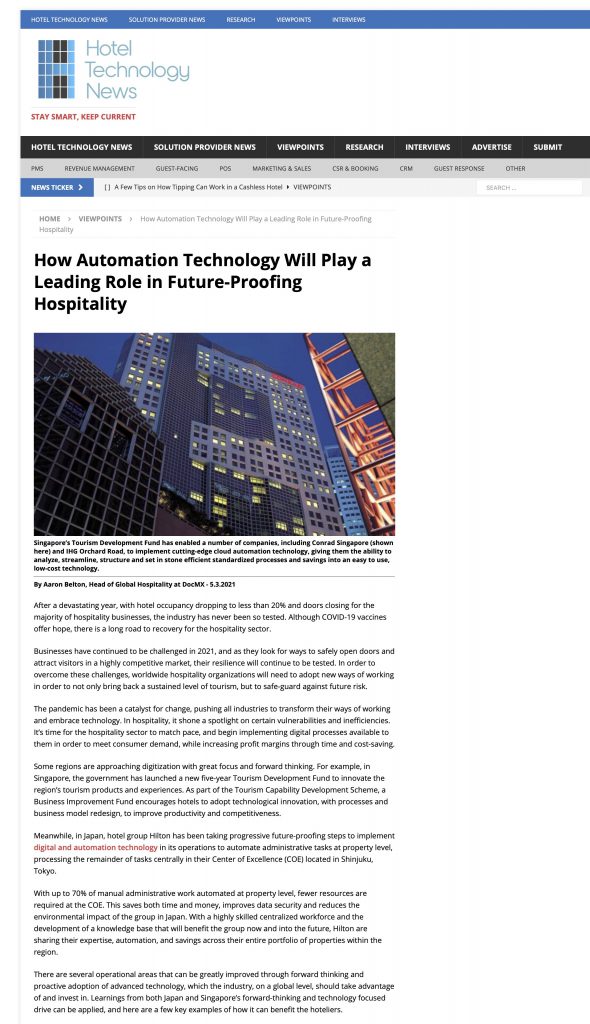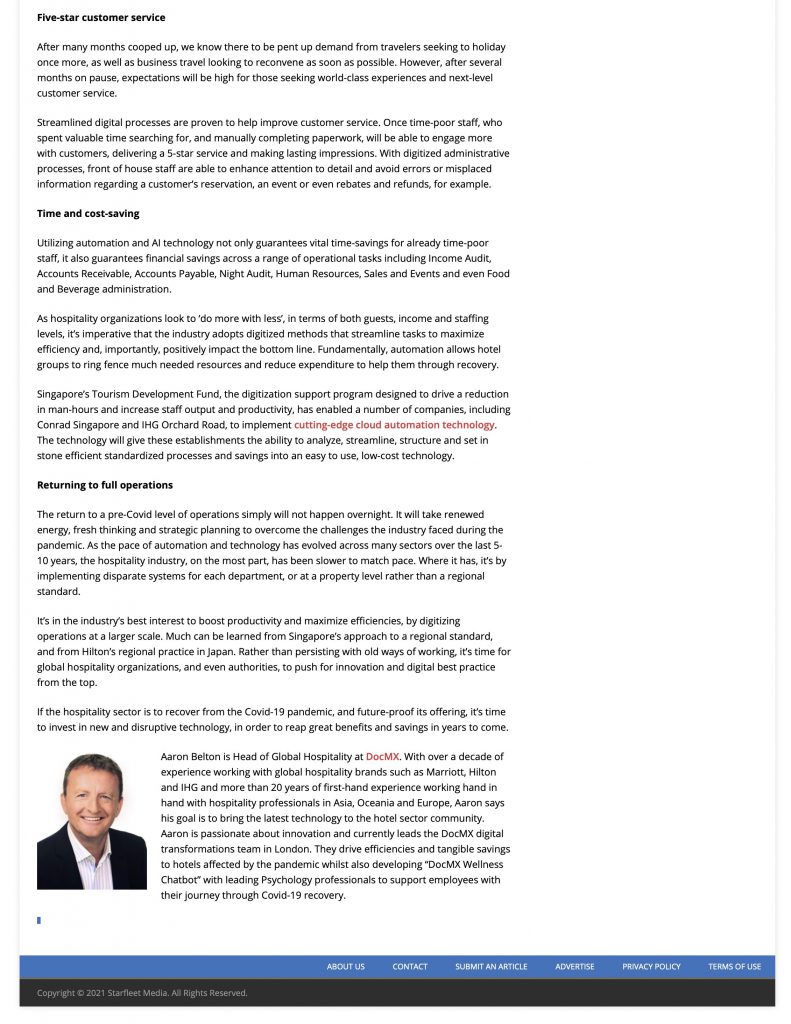After a devastating year, with hotel occupancy dropping to less than 20% and doors closing for the majority of hospitality businesses, the industry has never been so tested. Although vaccines offer hope, their resilience will continue to be tested in 2021, as hotels look for ways to safely open doors and attract visitors. In order to overcome these challenges, worldwide hospitality organizations will need to adopt new ways of working in order to not only bring back a sustained level of tourism, but to safe-guard against future risk.
“Utilizing automation and AI technology not only guarantees vital time-savings for already time-poor staff, it also guarantees financial savings across a range of operational tasks including Income Audit, Accounts Receivable, Accounts Payable, Night Audit, Human Resources, Sales and Events and even Food and Beverage administration”, explains Aaron Belton.
As hospitality organizations look to ‘do more with less’, in terms of both guests, income and staffing levels, it’s imperative that the industry adopts digitized methods that streamline tasks to maximize efficiency and, importantly, positively impact the bottom line. Fundamentally, automation allows hotel groups to ring fence much needed resources and reduce expenditure to help them through recovery.
For example Singapore’s Tourism Development Fund, the digitization support program designed to drive a reduction in man-hours and increase staff output and productivity, has enabled a number of hotels, including Conrad Singapore and IHG Holiday Inn Orchard Road, to implement cutting-edge cloud automation technology. The technology will give these establishments the ability to analyze, streamline, structure and set in stone efficient standardized processes and savings into an easy to use, low-cost technology.
Read the full article here or below:



